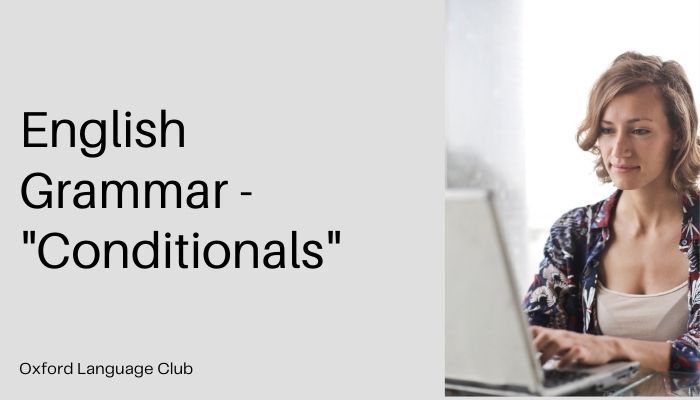Great site to keep my english skills updated for work and travel. I am really enjoying the lessons!
Maria C
 Argentina
Argentina


What are conditionals in English grammar?
Sometimes we call them 'if clauses'. They describe the result of something that might happen (in the present or future) or might have happened but didn't (in the past). They are made using different English verb tenses.
THERE ARE FOUR MAIN KINDS OF CONDITIONALS:
1. The Zero Conditional:
(if + present simple, ... present simple)
This conditional is used when the result will always happen. So, if water reaches 100 degrees, it always boils. It's a fact. I'm talking in general, not about one particular situation. The result of the 'if clause' is always the main clause.
The 'if' in this conditional can usually be replaced by 'when' without changing the meaning.
Examples:
If you heat water to 100 degrees, it boils.
If people eat too much, they get fat.
If you touch a fire, you get burned.
2. The First Conditional:
(if + present simple, ... will + infinitive)
It's used to talk about things which might happen in the future. Of course, we can't know what will happen in the future, but this describes possible things, which could easily come true.
Examples:
If it rains tomorrow, we'll go to the cinema.
If I study today, I'll go to the party tonight.
If I have enough money, I'll buy some new shoes.
3. The Second Conditional:
(if + past simple, ... would + infinitive)
(We can use 'were' instead of 'was' with 'I' and 'he/she/it'. This is mostly done in formal writing).
It has two uses.
Examples:
If I won the lottery, I would buy a big house. (I probably won't win the lottery)
If I met the Queen of England, I would say hello.
She would travel all over the world if she were rich.
Have a look at the examples:
If I had his number, I would call him. (I don't have his number now, so it's impossible for me to call him).
If I were you, I wouldn't go out with that man.
4. The Third Conditional
(if + past perfect, ... would + have + past participle)
It talks about the past. It's used to describe a situation that didn't happen, and to imagine the result of this situation.
Examples:
If she had studied, she would have passed the exam (but, really we know she didn't study and so she didn't pass).
If I hadn't eaten so much, I wouldn't have felt sick (but I did eat a lot, and so I did feel sick).
If we had taken a taxi, we wouldn't have missed the plane.
She wouldn't have been tired if she had gone to bed earlier.
She would have become a teacher if she had gone to university.